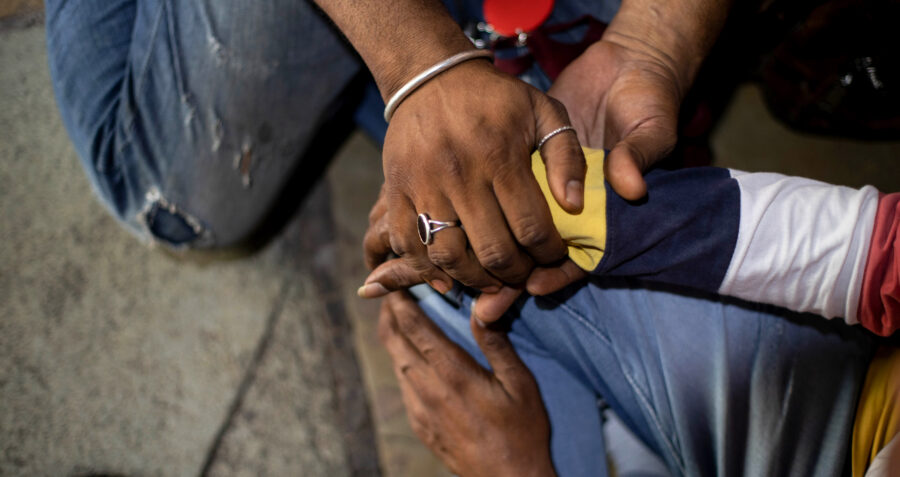Mental health screening

Key information
- Organisation: Alliance India and Gujarat State Network of People living with HIV (GSNP+)
- Country: India
- Region: Asia and the Pacific
- Stage of innovation: Stage 2. Proof of concept developed
- Start date: March 2021
- End date: July 2022
- Type of innovation: Services delivery innovation: new or different way of providing a service
- Budget: 100,000 USD
- Funder: Elton John AIDS Foundation (EJAF)
Summary of intervention
Many people reported poor mental health and well-being as result of COVID-19. People were seeing their family and friends die. Many lost their livelihoods and homes and were unable to feed themselves or their families. People living with HIV were also concerned about interruptions to their treatment. These problems added to existing mental health challenges for those people who are not accepted by their family or wider society due to their sexuality, gender identity or because they engage in sex work. High levels of taboo attached to mental illness meant that people did not talk about it or seek support. There was also a lack of awareness of available services and how to access these.
This was the first time that Alliance India and GSNP+ tried explicitly to identify and support community members with mental health issues. They worked closely with mental health experts at the Urban Health and Climate Resilience Centre of Excellence (UHCRCE) to design the intervention. The Urban Health and Climate Resilience Centre of Excellence also led a 2-day residential training for outreach workers – 15 outreach workers were trained to screen people reporting mental health issues and identify those needing referrals. They used a screening tool and by the end of the project, 33 people were identified and referred to the local hospital for further treatment and support.
learnings
Partnerships with local mental health institutions and organisations were critically important. As community members themselves, outreach workers were able to gain trust and, over time, encourage individuals to seek support despite initial reluctance. Training on how to screen and identify mental health conditions, and how to connect people to further services was also key, including a guided visit to the health facility to learn more about the services on offer.
next steps
While outreach workers and project coordinators were aware that taboos around mental health would be a problem, they underestimated the levels of shame and fear and found it hard to overcome the self-stigma and external stigma. Some community members talked at length about issues they were facing, such as depression and anxiety, but were reluctant to accept support. The short time scale for the project was another challenge. The model could be adapted to include a period to sensitise communities and break down taboos before offering referrals to those who need support.
sustainability
Huge stigma and low awareness around mental health issues are prevalent in India. There is increasing recognition of the urgent need to address this and overcome reluctance to seek mental health services. While networks like GSNP+ provide counselling to people living with HIV to support improved well-being and adherence, they need further training to identify conditions that may need referral to mental health professionals. Future efforts to integrate mental health services need a much longer time frame and greater use of social and behavioural change interventions to better prepare the community.

